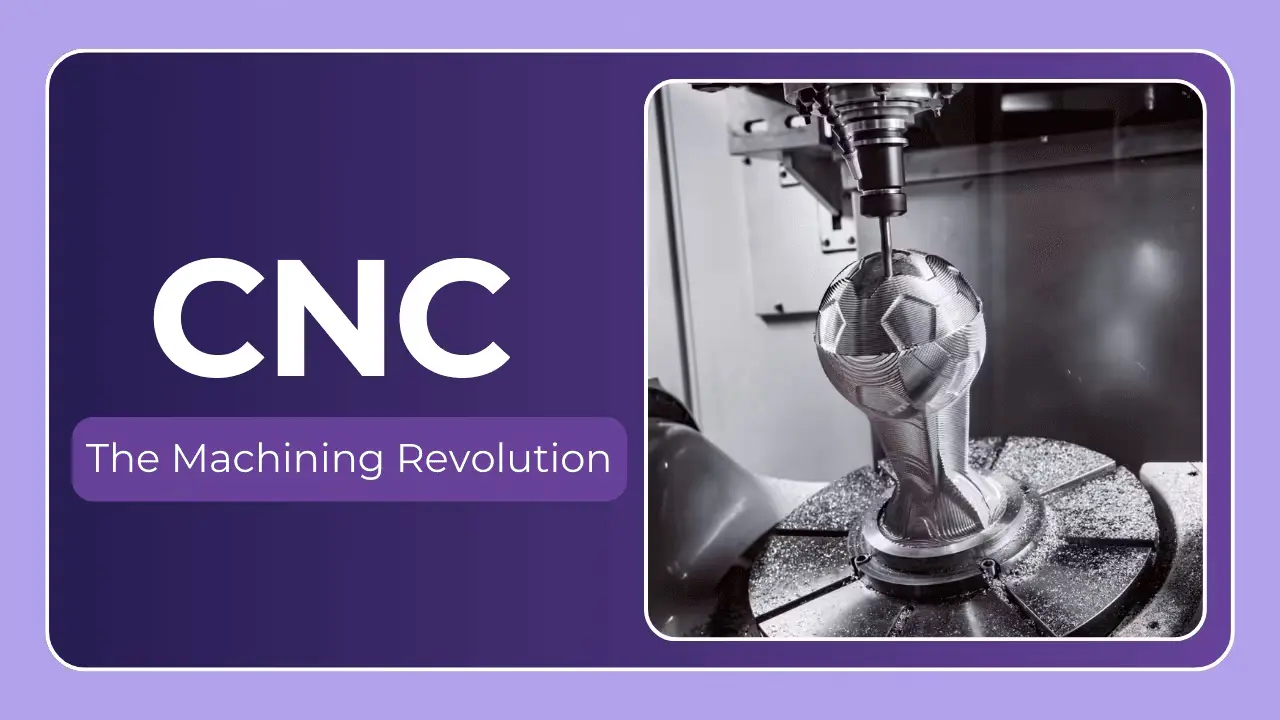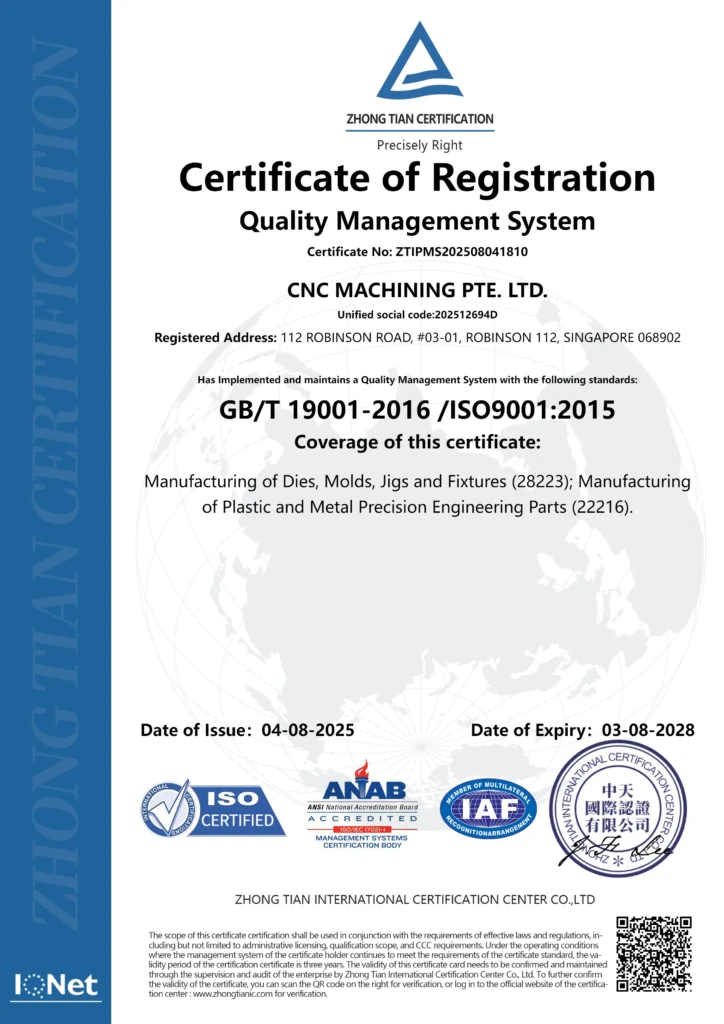Precision Manufacturing Solutions: A Deep Dive into CNC Machining & Why Georgia is a Growing Hub
In today’s rapidly evolving manufacturing landscape, precision and efficiency are paramount. Companies across industries – from aerospace and automotive to medical and energy – demand components with tight tolerances, complex geometries, and consistent quality. This is where Computer Numerical Control (CNC) machining steps in, offering a powerful and versatile solution. While global players like CNC MACHINING PTE. LTD in Singapore are leading the charge with advanced five-axis capabilities, a significant and growing center for CNC machining is emerging right here in the United States: Georgia.
This article will explore the world of CNC machining, delve into the advantages of choosing a Georgia-based provider, and discuss the technologies and materials driving innovation in this field. We’ll also touch upon the benefits of partnering with a full-service provider capable of handling post-processing and finishing.
What is CNC Machining? A Foundation for Understanding
At its core, CNC machining is a subtractive manufacturing process. This means material is removed from a solid block (the workpiece) to create the desired shape. Unlike traditional machining which relies on manual operation, CNC machining utilizes pre-programmed computer instructions to control cutting tools. These tools, including mills, lathes, routers, and grinders, precisely remove material layer by layer, guided by a digital design (typically a CAD file).
The benefits are substantial:
- Accuracy & Precision: CNC machines consistently produce parts with incredibly tight tolerances, often measured in thousandths of an inch.
- Repeatability: Once programmed, a CNC machine can replicate the same part flawlessly, time after time.
- Complexity: CNC machining can create intricate designs and geometries that would be impossible or impractical to achieve manually.
- Efficiency: Automated operation reduces labor costs and increases production speed.
- Versatility: CNC machining can work with a wide range of materials, as we’ll discuss later.
The Rise of Five-Axis CNC Machining: A Game Changer
While three-axis CNC machining (movement along X, Y, and Z axes) is common, five-axis machining represents a significant leap forward. Adding two rotational axes allows the cutting tool to approach the workpiece from multiple angles simultaneously. This unlocks several key advantages:
- Complex Geometries: Five-axis machining excels at creating parts with undercuts, angled holes, and complex curves.
- Reduced Setup Time: Fewer setups are required, as the part can be machined from multiple sides in a single operation.
- Improved Surface Finish: Optimal tool orientation minimizes vibration and produces a smoother surface finish.
- Shorter Cycle Times: More efficient toolpaths and reduced setups translate to faster production.
Companies like CNC MACHINING PTE. LTD are at the forefront of this technology, demonstrating the power of five-axis machining for demanding applications.
Why Georgia? A Strategic Location for CNC Machining
Georgia has rapidly become a prime location for manufacturing, and CNC machining is a significant part of that growth. Several factors contribute to this:
- Pro-Business Environment: Georgia offers a favorable tax climate, streamlined regulations, and a supportive business ecosystem.
- Skilled Workforce: The state boasts a growing pool of skilled machinists and engineers, fueled by technical colleges and workforce development programs.
- Logistics Hub: Hartsfield-Jackson Atlanta International Airport is the world’s busiest airport, providing unparalleled access to global markets. Georgia also has a robust network of highways and rail lines.
- Growing Industry Cluster: The presence of major automotive manufacturers (Kia, Hyundai), aerospace companies, and medical device manufacturers has spurred the growth of a supporting network of CNC machining providers.
- Competitive Costs: Compared to some other manufacturing hubs, Georgia offers competitive labor and operating costs.
Materials Matter: What Can CNC Machining Handle?
The versatility of CNC machining extends to the materials it can process. Here’s a breakdown of common materials and their applications:
| Material | Common Applications | CNC Machining Considerations |
|---|---|---|
| Aluminum (6061, 7075) | Aerospace components, automotive parts, molds, prototypes | Excellent machinability, lightweight, corrosion resistant |
| Stainless Steel (304, 316) | Medical devices, food processing equipment, marine applications | Requires slower cutting speeds, can work harden |
| Titanium (Grade 5) | Aerospace, medical implants, high-performance automotive | Difficult to machine, requires specialized tooling and coolants |
| Plastic (ABS, Delrin, Nylon) | Prototypes, housings, gears, consumer products | Requires careful tool selection to prevent melting or chipping |
| Brass & Copper | Electrical components, plumbing fixtures, decorative parts | Good machinability, excellent conductivity |
| Tool Steel | Molds, dies, cutting tools | High hardness, requires specialized tooling and slow cutting speeds |
This table is not exhaustive, but it illustrates the broad range of materials that can be successfully machined using CNC technology.
Beyond Machining: The Value of Post-Processing & Finishing
Producing a raw machined part is often just the first step. Many applications require additional processes to achieve the desired functionality and aesthetic. A full-service CNC machining provider can offer:
- Deburring: Removing sharp edges and burrs for safety and functionality.
- Polishing: Achieving a smooth, reflective surface finish.
- Anodizing: Creating a protective and decorative oxide layer on aluminum.
- Powder Coating: Applying a durable and corrosion-resistant coating.
- Heat Treating: Improving the strength and hardness of metal parts.
- Assembly: Combining multiple machined components into a finished product.
- Inspection & Quality Control: Ensuring parts meet specified tolerances and quality standards.
Partnering with a provider that offers these services streamlines the manufacturing process, reduces lead times, and ensures consistent quality.
Looking Ahead: Trends Shaping the Future of CNC Machining
Several key trends are shaping the future of CNC machining:
- Automation & Robotics: Increased automation, including robotic loading and unloading of parts, is improving efficiency and reducing labor costs.
- Digital Twin Technology: Creating virtual replicas of machines and processes allows for simulation, optimization, and predictive maintenance.
- Additive Manufacturing Integration: Combining CNC machining with additive manufacturing (3D printing) allows for hybrid manufacturing processes that leverage the strengths of both technologies.
- Advanced Tooling: New cutting tool materials and geometries are improving machining performance and extending tool life.
- AI-Powered Optimization: Artificial intelligence is being used to optimize toolpaths, predict tool wear, and improve process control.
Conclusion: Choosing the Right Partner for Your CNC Machining Needs
CNC machining is a critical manufacturing process that enables innovation across a wide range of industries. Whether you require simple prototypes or complex, high-precision components, selecting the right partner is crucial.
While global leaders like CNC MACHINING PTE. LTD offer cutting-edge capabilities, the growing CNC machining hub in Georgia provides a compelling alternative with its strategic location, skilled workforce, and competitive costs.
When evaluating potential providers, consider their:
- Equipment Capabilities: Do they have the necessary machines and technology to meet your specific requirements (e.g., five-axis machining)?
- Material Expertise: Can they work with the materials you need?
- Post-Processing Services: Do they offer the finishing and assembly services you require?
- Quality Control Processes: What measures do they have in place to ensure consistent quality?
- Communication & Responsiveness: Are they responsive to your inquiries and able to provide clear and timely communication?
By carefully considering these factors, you can find a CNC machining partner that will help you bring your ideas to life with precision, efficiency, and quality. The future of manufacturing is being shaped by advanced technologies like CNC machining, and Georgia is poised to play a significant role in that future.




